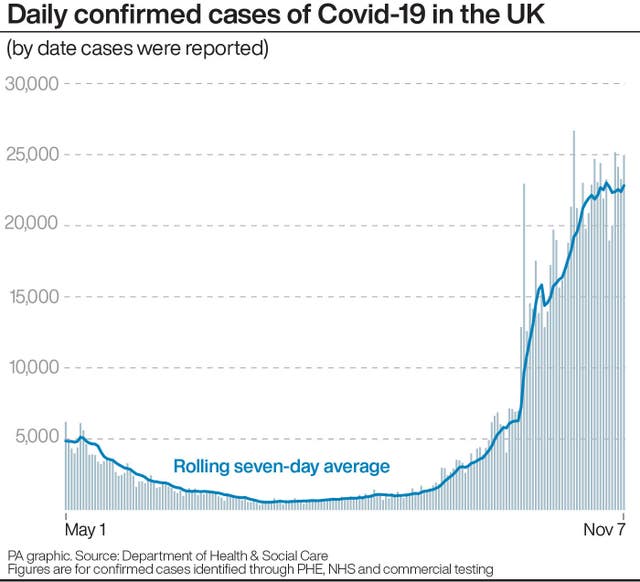Welsh first minister Mark Drakeford said it was “inevitable” that cases would rise in some areas of the country as it prepares to come out of a firebreak lockdown.
Back to a new normal
A new set of national rules will follow the 17-day lockdown in Wales, which Drakeford said will be easier to follow as he looks to avoid a “reliance” on entirely local measures. It comes after the Welsh government faced calls to extend the lockdown – which ends on Monday 9 November – in the south Wales valleys where the number of coronavirus (Covid-19) cases has risen.
On Monday, our firebreak will end and a new set of national measures will be introduced.
This means we'll all have to make changes to our daily lives.
By reducing the number of people we see and the amount of time we spend with them, we will help #KeepWalesSafe pic.twitter.com/EhMh9lJcQJ
— Eluned Morgan (@PrifWeinidog) November 7, 2020
The final week of the country’s lockdown saw more coronavirus patients in Welsh hospitals than there were during the April peak of the first wave. But Drakeford said the increase in cases was “inevitable”. He told Sophie Ridge on Sky on 8 November:
People who were falling ill during the two weeks of the firebreak period were already infectious before the firebreak period began.
We were absolutely certain that we would see those numbers continue to rise during the firebreak period itself.
He said he expected to see the impact of the firebreak and the numbers to decline after 9 November, adding:
That is when we expect the number of people going into hospitals to begin to go into reverse.

Percentages
Earlier this week, Merthyr Tydfil in the south of Wales became the worst-hit area of the UK with 741 cases per 100,000 people. But Drakeford claimed it is the smallest borough in Wales and that “relatively low raw numbers drive quite big percentage and rate numbers”.
To deal with flare-ups in specific areas, he said local restrictions will be implemented in a targeted way to find the cause of cases, such as a factory outbreak. He was adamant not to go back to a “patchwork” of local measures. He said:
We are going to have a new national set of rules that are clearer, more simpler, and therefore easier to follow.
That does not mean, of course, that if there are local flare-ups that local action may not need to be taken but it will not be a reliance on entirely local measures.
He added: “If there are local restrictions, we will target them at the cause of the numbers”.
The rapid COVID-19 surveillance dashboard has been updated.
💻 https://t.co/zpWRYSUbfh
📱 https://t.co/HSclxpZjBh
Read our daily statement here: https://t.co/u6SKHz0zsG pic.twitter.com/pMCxWxy06i— Public Health Wales (@PublicHealthW) November 7, 2020
Giving an example, Drakeford said:
If in Merthyr there are specific reasons, we had for example a factory in Merthyr where there was an outbreak, what we will do instead of taking county-wide measures, we will try to think of more targeted things that we can do to bear down on any cause of local flare-ups.
Christmas approaches
This coming week, Drakeford said the four nations of the UK will meet after being promised by Cabinet Office minister Michael Gove to “pool ideas, plan together, have a common approach to the Christmas period”.
On whether he wanted to see families reunite over Christmas, he said:
The restrictions people have had to live with are incredibly difficult and demanding, and everybody is tired and fatigued of coronavirus, if we can offer respite over Christmas that is what we would want to do.
He added:
The only way to do that is for us to have that opportunity to meet and talk together.
I really hope the UK Government is serious about this and make certain that those opportunities exist for us all.
On 7 November, Public Health Wales said there were a further 958 cases of coronavirus in Wales, bringing the total number of confirmed cases to 59,237. It also reported another 32 deaths, taking the total in Wales since the start of the pandemic to 2,014.

















